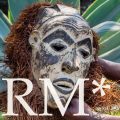Can you exhibit remains obtained without permission? How do we judge scientists of the past who by today’s standards did things we no longer approve of?
These are the questions the University Museum of Groningen is now asking its visitors.
The museum wants to provoke discussion: what is the responsibility of museums in dealing with the colonial past?
Usually that discussion focuses on art and looted objects; in Groningen, it’s all about people and animals.
At the center is the estate of scientist Petrus Camper (1722-1789), whose collection has been held at the University of Groningen for more than 200 years.
The Dutch national daily interviews guest-curator Paul Wolff Mitchell and researcher Lisette de Jong.


